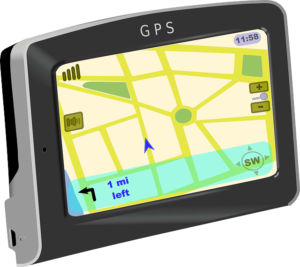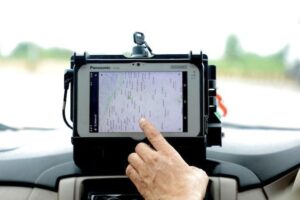Business
7 Major Advantages Of Vehicle Tracking Systems
Vehicle tracking systems are crucial for personal vehicle security and fleet management. A vehicle tracker leverages several technologies, including GPS and GLONASS satellites, mobile technology (including apps), automotive navigation systems, and mapping software to monitor vehicles. Moreover, it delivers real-time data from the monitoring process (active tracking) or saves it for on-demand retrieval (passive tracking).
Although vehicle tracking systems prioritize vehicle theft prevention, the data generated from the systems has numerous applications that translate into benefits. Therefore, a vehicle tracking system is a worthwhile investment for private car owners and fleet businesses. Below is an overview of car tracking systems’ benefits.
Vehicle Use Monitoring For Efficiency
Efficient vehicle use reduces vehicle management costs for individual car owners and fleet management. Below is an overview of how vehicle tracking facilitates vehicle efficiency.
First, vehicle tracking systems monitor driver behavior, including driving speeds, acceleration, braking, cornering, and frequently changing lanes. According to one study, such aggressive driving accounts for one-third of car accidents. Moreover, such aggressive tendencies take a toll on the vehicle, increasing maintenance costs.
Besides aggressive driving, fleet idling is another challenge fleet managers face. Fleet idling may seem inconsequential, but it can damage various car parts, including the engine, fan belt, and exhaust system.
Proving inefficient vehicle use without a vehicle tracking system may require constantly inspecting the vehicle physically, which is also inefficient. However, the data from vehicle tracking systems helps fleet managers and parents monitor driver behavior and address inefficient vehicle use.
Efficient vehicle use lowers fuel consumption costs. Moreover, fleet managers and care owners can accrue long-term savings via car tracker packages.
RAM tracking offers the most competitive vehicle tracking system packages on the market. The service provider’s Lite, Core, and Plus packages include free installation, unlimited users, multi-network SIM cards, and an online help center as its primary services. You can use the comparison feature on RAM Tracking’s website to view other features in each package, the available add-ons, and cost estimates.
Increase Vehicle Safety And Theft Recovery
A vehicle is an expensive, high-involvement purchase, and losing it to theft causes financial loss and inconveniences. Although comprehensive car insurance covers theft, it does not cater to deductibles and the cost of car rental or alternative transport modes until they replace your car. Moreover, comprehensive car insurance does not cover the items inside the stolen vehicle, causing asset loss.
Comprehensive car insurance, while crucial, is only a single layer of protection against theft. However, a vehicle tracking system can enhance your personal or business fleet’s security.
It’s often not apparent to car thieves that a vehicle has a tracker installed while they commit the felony. Therefore, they often leave the stolen car at a designated location and wait 2-3 days to see whether recovery agents track it. Consequently, vehicles fitted with a car tracking system have a recovery rate above 90% after a theft incident. Some tracking systems even record a 100% stolen vehicle recovery rate.
Enhanced Productivity
Besides aggressive driving and its effects on a vehicle, inefficient time use lowers productivity, causing a dip in profits for businesses relying on vehicle fleets, including courier, logistics, and delivery service companies. However, a vehicle tracking system can help fleet managers improve productivity as follows:
Most vehicle tracking systems have a route mapping feature to help fleet drivers avoid time-wasting hurdles. Fleet drivers spend significant time stuck in traffic if they transport cargo using the wrong route at the wrong time of the day. The time wasted stuck in traffic, including due to unprecedented events like road accidents and construction, means drivers make fewer trips per day.
However, a vehicle tracking system identifies and maps out the routes with minimal traffic, allowing drivers to spend less time in traffic. Moreover, fleet managers can monitor the routes used remotely, ensuring fleet drivers maximize input. Less time spent stuck in traffic translates to higher output by the drivers and lower carbon emissions from vehicle exhaust fumes.
Less Paperwork For Fleet Managers
Fleet data management is crucial to successful fleet management. It entails collecting data from the drivers, organizing it, and consolidating it into actionable reports. Data management also entails organizing and storing the data in digital or physical archives for future reference.
Data management without a vehicle tracking system is a lot of work. The time-consuming procedure entails drivers filling out forms that the fleet manager must evaluate and organize.
However, the primary disadvantage of such dated paperwork-heavy fleet data management is the high human error likelihood. Moreover, reviewing such data aggregates takes time, which delays decision-making.
In contrast, vehicle tracking systems deliver real-time fleet data, saving drivers the time spent filling forms and following up on payment claims. Moreover, most vehicle tracking systems support a data analytics function to help fleet managers make data-driven decisions.
Lower Insurance Premiums
As stated earlier, a comprehensive car insurance package protects against vehicle theft and other unprecedented events. However, while mandatory in most jurisdictions, car insurance coverage is anything but cheap. Nonetheless, you can utilize vehicle tracking systems to lower your monthly premium amounts.
First, insurance companies work under the risk assessment principle; assets with a higher risk of loss get charged higher premiums. Building on this premise, vehicles fitted with tracking systems have a significantly lower risk of loss, translating to lower premiums.
Second, as stated above, car tracking systems monitor driver behavior. Insurance companies also utilize in-house apps with similar functionality to identify good drivers and offer them lower premiums based on low accident probability.
Improved Customer Service
Cross-border trading and doorstep delivery industries are on the rise, and customers in both industries constantly demand stellar services. Moreover, online reviews that can make or break your fleet business puts pressure on logistics service providers to outdo the competition.
Therefore, business-savvy companies utilize vehicle tracking features like route mapping to reduce order delivery time. Moreover, they use the feature to facilitate order tracking for customer convenience. Such savvy moves often earn them five-star rankings in online reviews.
Lifecycle Management
Like most things, vehicles do not last forever. While individual car owners can hold on to a car for its sentimental value, the same does not apply to fleet managers.
Fleet managers need a vehicle replacement strategy to reap maximum value when they replace the fleet vehicle. A vehicle’s lifecycle management entails keeping stellar records of the vehicle’s maintenance schedule, and a vehicle tracking system automatically generates and archives such records.
Conclusion
Vehicle tracking systems are a worthwhile investment for every private car owner or fleet manager seeking to maximize the car’s utility. Therefore, consult a trusted vehicle tracking system company today to receive a quote and discover additional tracking system benefits.
-
Blog1 year ago
MyCSULB: Login to CSULB Student and Employee Portal – MyCSULB 2023
-
Android App3 years ago
Cqatest App What is It
-
Android1 year ago
What Is content://com.android.browser.home/ All About in 2023? Set Up content com android browser home
-
Software2 years ago
A Guide For Better Cybersecurity & Data Protection For Your Devices
-
Latest News2 years ago
Soap2day Similar Sites And Alternatives To Watch Free Movies
-
Android2 years ago
What is OMACP And How To Remove It? Easy Guide OMACP 2022
-
Android3 years ago
What is org.codeaurora.snapcam?
-
Business2 years ago
Know Your Business (KYB) Process – Critical Component For Partnerships
























